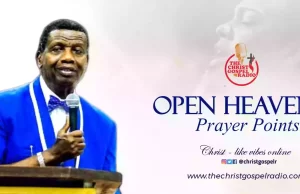Ever since I was knee-high to a gnat, I have been taught about and have believed in the infallibility of Scripture. Among the upper echelons of doctrinal truths, this one ranks alongside the Godhead, the deity of Christ, and salvation by grace. We may fuss around with a few of the events in God’s eschatological calendar or leave breathing room for differing opinions regarding angels and local church government.
But when the subject turns to the infallibility and inerrancy of Holy Writ, I’m convinced there’s no wobble room. Can’t be. Take away that absolute and you’ve opened a hole in your theological dike that cannot be plugged. Given enough time and pressure, it wouldn’t be long before everything around you would get soggy and slippery. Make no mistake about it; the infallibility of Scripture is a watershed issue.
But wait . . . let’s stop right there when it comes to infallibility. Before I make my point, allow me to quote Webster’s definition:
Incapable of error . . . not liable to mislead, deceive, or disappoint.
While that is certainly true of Scripture, it is not true of people. When it comes to humanity, fallibility is the order of the day. Meaning what? Just this: there is not one soul on this earth who is incapable of error, who is free from fault, who is unable to make mistakes, who is absolutely and equivocally reliable. Can’t be. Depravity mixed with limited knowledge and tendencies to misunderstand, misread, misquote, and misjudge should keep all of us free from two very common mistakes: first, deification of certain individuals (including ourselves); and second, disillusionment when we discover fault and mistakes in others.
Just as biblical infallibility assures us that each page is incapable of error or deception, fallibility reminds us that each person is capable of both. The implications are equally clear. When it comes to the Bible, keep trusting. When it comes to people, be discerning.
This includes all people. I don’t have space enough to complete a list, so I’ll be painfully general and mention one group. I choose this group only because it’s the one we tend not to question: those professionals whom we trust with our bodies, minds, and souls—namely, physicians, psychologists, and pastors. What influence these men and women possess! What good they do! How necessary they are! Most of us, if asked to name 10 people we admire and appreciate the most, would include two or three from this category.
How gracious of God to give us such splendid individuals to help us through this vale of tears! Yet each one has something in common with everyone else—fallibility. Those whom we most admire remind us of that from time to time; nevertheless, everything in us cries out to resist such reminders. Of the three, I believe it is the minister whom people tend most to place on a pedestal.
It is certainly an unscriptural practice. The Berean believers are commended for listening to Paul then “examining the Scriptures daily to see whether these things were so” (Acts 17:11). Apollos and Paul are referred to merely as “servants through whom you believed” (1 Corinthians 3:5) and later given a rather insignificant place:
So then neither the one who plants nor the one who waters is anything, but God who causes the growth. (1 Corinthians 3:7)
It’s easy to forget all that, especially in a day when we hunger for spiritual leaders whom we can respect and follow. Put flawed human beings on a pedestal and they are bound to topple, fail, and disappoint, but God’s Word is holy, inerrant, and totally reliable. To Him be the glory.
Excerpt taken from Come before Winter and Share My Hope by Charles R. Swindoll. Copyright © 1985, 1988, 1994 by Charles R. Swindoll, Inc. All rights reserved worldwide.










